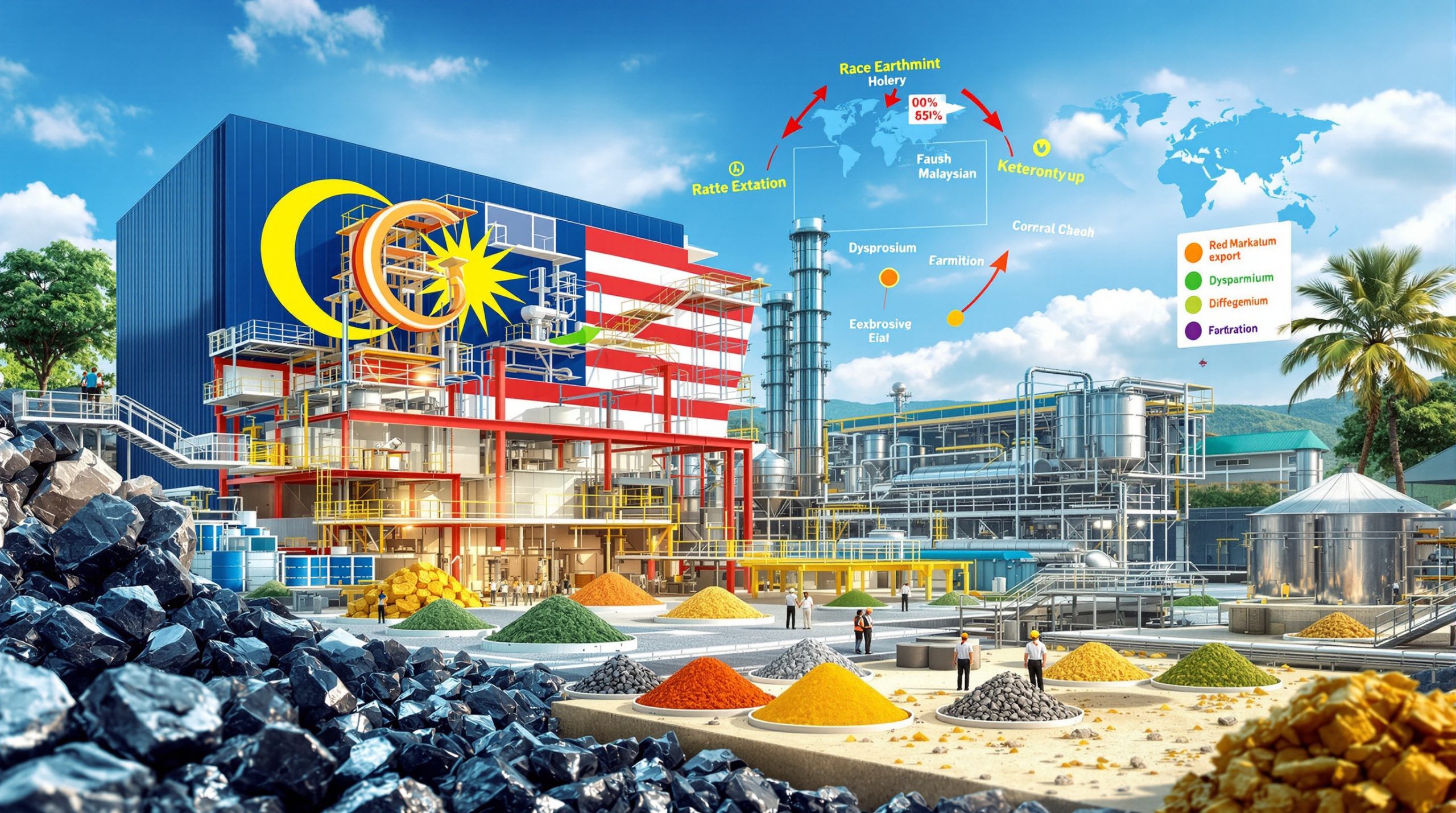Why Fortuna Mining Exited Burkina Faso
Security Challenges and Operational Constraints
Burkina Faso's deteriorating security landscape compelled Fortuna to adopt a fly-in, fly-out operational model, a logistical necessity that increased costs and reduced operational flexibility. Jihadist attacks in the Sahel region—which have displaced over 2 million people across Burkina Faso, Mali, and Niger as of 2024—directly impacted Yaramoko's profitability. The mine's security expenses reached $7 million annually, compared to $200,000–$300,000 in more stable jurisdictions like Ivory Coast. These costs accounted for nearly 5% of Fortuna's total operating expenses in 2024, rendering long-term viability untenable despite the site's production capacity of 70,000 ounces annually.
Regulatory Shifts Under Military Governance
Burkina Faso's July 2024 mining code revision mandating 30% state participation in mining projects exacerbated fiscal pressures. This policy aligned with regional trends—Mali introduced similar ownership requirements in 2023, while Niger seized control of a French-operated uranium site in December 2024. CEO Ganoza criticized Burkina Faso's approach as "pricing themselves out of the market," noting that state participation demands reduced investor returns by 12–18% in comparable jurisdictions. The coup-led government's unpredictability further complicated matters; since Captain Ibrahim Traoré's 2022 takeover, Burkina Faso has reassessed over 20 mining contracts, creating an environment Fortuna deemed incompatible with its risk tolerance.
Financial Rationale for the Yaramoko Sale
The $130 million divestiture eliminated a liability while allowing Fortuna to reallocate resources to higher-potential assets. Although the sale reduced annual gold output by 70,000 ounces, Yaramoko's remaining reserves of 450,000 ounces offered limited upside compared to Seguela's 1.2 million ounces in Ivory Coast. Ganoza characterized the buyer's offer as "compelling," reflecting a 15% premium over the mine's net present value under revised security and regulatory assumptions. This decision exemplifies the industry's growing emphasis on portfolio optimization over volume retention in high-risk regions.
Guinea's Emergence as a Strategic Alternative
Comparative Security Advantages
Guinea's minimal jihadist activity—accounting for just 3% of Sahelian terrorist incidents in 2024—contrasts sharply with Burkina Faso's 47% share. This stability enables conventional road-based transportation, reducing security expenditures to $300,000 annually. The country's bauxite-rich Boké region has maintained continuous operations despite regional instability, with Rio Tinto reporting zero security-related stoppages at its Simandou iron ore project since 2021. Fortuna's site visits to Guinean gold prospects leverage this relative calm, avoiding the $6.7 million annual security cost differential seen in Burkina Faso.
Regulatory Continuity and Exploration Potential
Unlike its neighbors, Guinea has retained its 2011 mining code, which mandates a 15% state free carry plus optional 20% purchased stake—a structure Fortuna considers "predictable." The country's gold reserves, estimated at 700 tonnes by the U.S. Geological Survey, remain underexplored compared to Mali's 1,400 tonnes. Ganoza highlighted "two-tier opportunities" in Guinea's Siguiri and Nzérékoré regions, where artisanal mining covers less than 40% of prospective zones. Fortuna's planned $15 million Guinean exploration budget for 2025 targets greenfield sites with potential for +3 million ounce deposits.
Political Dynamics Under Mamady Doumbouya
Since Colonel Mamady Doumbouya's 2021 coup, Guinea has pursued a pragmatic approach to mining investment strategies. While pressuring developers on timelines—as seen with the Simandou project's 2025 completion mandate—the government has avoided radical code revisions. This contrasts with Mali's 2023 arrest of Endeavour Mining executives during contract renegotiations. Fortuna's engagement strategy emphasizes early partnership with Guinea's National Directorate of Geology and Mines (DNGM), mirroring successful approaches in Senegal where collaboration with the Agence Sénégalaise de la Promotion des Investissements (APIX) accelerated Diamba Sud's permitting by 14 months.
Broader Trends in West African Mining Governance
Militarization and Resource Nationalism
The tri-border "coup belt" of Burkina Faso, Mali, and Niger has seen six military takeovers since 2020, each accompanied by mining sector reforms. Mali's 2023 decree requiring state-owned Société des Mines de l'Avenir (SMA) to hold 35% of all gold projects reduced foreign operators' margins by 22% on average. Niger's revocation of French uranium licenses and Burkina Faso's 2024 industrial mine seizures reflect a regional shift toward asserting sovereign control, disrupting the fiscal frameworks underpinning $12 billion in foreign mining investments.
Industry Counterstrategies and Risk Mitigation
Major miners are adopting three-pronged responses: divesting high-risk assets (e.g., Endeavour's 2023 Burkina Faso exit), diversifying across jurisdictions (Fortuna's Senegal-Ivory Coast-Guinea trifecta), and increasing stakeholder engagement. Newmont's "community development pacts" in Ghana, which allocate 1% of revenue to local infrastructure, reduced social unrest incidents by 60% from 2022–2025. Fortuna's 2025 community investment budget of $8.5 million, up 28% year-over-year, aims to replicate this model in Guinea's Lola gold district.
The Security Cost-Production Nexus
Analysis of 12 West African gold mines reveals a nonlinear relationship between security expenditures and output. Facilities spending over $5 million annually on security—like Yaramoko—saw 19% lower productivity per ounce than sub-$2 million sites. This stems from operational disruptions; Burkina Faso's Essakane mine reported 42 security-related stoppages in 2024, versus none at Senegal's Sabodala-Massawa. Fortuna's pivot prioritizes jurisdictions where security costs remain below 2% of operational expenses, a threshold breached in Burkina Faso since 2021.
Fortuna's Global Strategy and Regional Implications
Budget Reallocation and Project Prioritization
The $51 million 2025 exploration budget targets:
-
Senegal's Diamba Sud: $22 million for resource expansion beyond current 2.1 million ounce reserves
-
Ivory Coast's Seguela: $18 million to increase mill capacity to 4,000 tpd
-
Guinea: $8 million for initial prospecting and partnership development
This allocation reflects a 60:40 split between near-term production gains and long-term discovery, contrasting with 2022's 75:25 ratio favoring existing assets.
Risk-Adjusted Portfolio Construction
Fortuna's post-divestment portfolio spans:
-
Low-risk tier (Ivory Coast, Senegal): 85% of 2025 production (310,000 ounces)
-
Medium-risk tier (Guinea, Mauritania): 12% of production (45,000 ounces)
-
High-risk tier (Mali exploration): 3% (10,000 ounces)
This structure limits exposure to jurisdictions with security costs exceeding $1 million annually, while maintaining optionality in high-potential regions. These investments require thorough feasibility insights to ensure economic viability in each jurisdiction.
Industry-Wide Lessons and Future Outlook
The Burkina Faso-Guinea transition highlights four key lessons for African mining:
-
Security costs exceeding 5% of OpEx necessitate exit considerations
-
Military governments require differentiated engagement (e.g., Guinea's partnership vs. Burkina Faso's resistance)
-
Portfolio diversification across stability gradients enhances resilience
-
Early community investment reduces long-term political risks
As resource nationalism intensifies, successful operators will combine rigorous risk analytics with proactive stakeholder strategies—approaches central to Fortuna's recalibrated West African presence.
"Political stability and security conditions vary significantly across West African nations, creating a complex risk landscape that requires nuanced assessment rather than regional generalizations." The company's strategic realignment offers a blueprint for balancing mineral potential against evolving geopolitical shift strategies in one of the world's most resource-rich yet challenging regions.
Comparison: West African Mining Jurisdictions in 2025
| Country | Political Situation | Security Challenges | Mining Code Changes | Foreign Investment Climate |
|---|---|---|---|---|
| Burkina Faso | Military government since 2020 | Severe jihadist threats | Revised July 2024 (30% state participation) | Deteriorating (Fortuna & Endeavour exits) |
| Mali | Military government since 2020 | Significant jihadist activity | Revised with increased state control | Hostile (arrests of executives, asset seizures) |
| Niger | Military government since 2020 | Moderate jihadist presence | Increased resource nationalism | Deteriorating (uranium site seizure) |
| Guinea | Military government since 2021 | Limited security concerns | No major revisions to mining code | Relatively stable but with pressure on development timelines |
| Ivory Coast | Democratic government | Minimal security issues | Stable mining regulations | Favorable (home to Fortuna's flagship Seguela mine) |
| Senegal | Democratic government | Minimal security issues | Stable mining regulations | Favorable (focus of Fortuna's Diamba Sud project) |
FAQ: Fortuna Mining and Guinea investments
What factors led to Fortuna's decision to exit Burkina Faso?
Fortuna's exit was driven by a combination of escalating security costs (reaching $7 million annually), dangerous conditions requiring fly-in, fly-out operations, regulatory changes demanding up to 30% state participation, and the Yaramoko mine's low remaining reserves. These factors collectively made continued operations economically challenging despite the $130 million sale resulting in a 70,000-ounce reduction in gold production.
Why is Guinea attractive to Fortuna despite being under military rule?
Guinea presents a more favorable investment environment despite being led by coup leader Mamady Doumbouya since 2021. The country faces fewer jihadist threats than its neighbors, has maintained its existing mining code, and offers significant geological potential for gold discoveries. Fortuna's CEO specifically noted that Guinea's situation differs markedly from the challenging conditions in Mali, Burkina Faso, and Niger. Furthermore, Guinea has avoided implementing the same types of governance challenges seen in neighboring countries.
How is Fortuna reallocating its investment resources?
Fortuna has increased its exploration and project development budget to $51 million in 2025, up from $41 million in 2024. This growing budget will support new opportunities in Guinea, significant investment in Senegal's Diamba Sud gold project, and expansion of operations around its flagship Seguela gold mine in Ivory Coast, creating a more diversified portfolio across West Africa with improved global commodity outlook.
Key Takeaways for Mining Investors in West Africa
Political stability and security conditions vary significantly across West African nations, creating a complex risk landscape that requires nuanced assessment rather than regional generalizations.
Military governments in the region are increasingly asserting control over natural resources through revised mining codes, state participation requirements, and sometimes aggressive tactics against foreign operators.
Mining companies must weigh geological potential against rising security costs, which can reach millions of dollars annually in conflict zones and fundamentally alter operational economics.
Strategic pivots like Fortuna's exit from Burkina Faso and entry into Guinea demonstrate how companies are adapting to the changing landscape while maintaining their regional presence.
Increasing exploration budgets (Fortuna's 24% increase to $51 million) indicate continued confidence in West Africa's mineral potential despite political and security challenges.
Ready to Invest in the Next Major Mineral Discovery?
Don't miss out on potentially transformative ASX mining opportunities – Discovery Alert's proprietary Discovery IQ model instantly notifies investors of significant mineral discoveries, turning complex data into actionable insights. Explore why historic discoveries can generate substantial returns by visiting our dedicated discoveries page and begin your 30-day free trial today to position yourself ahead of the market.




